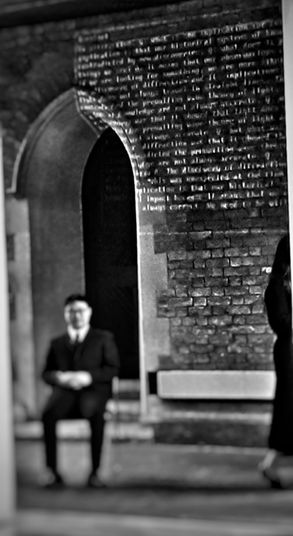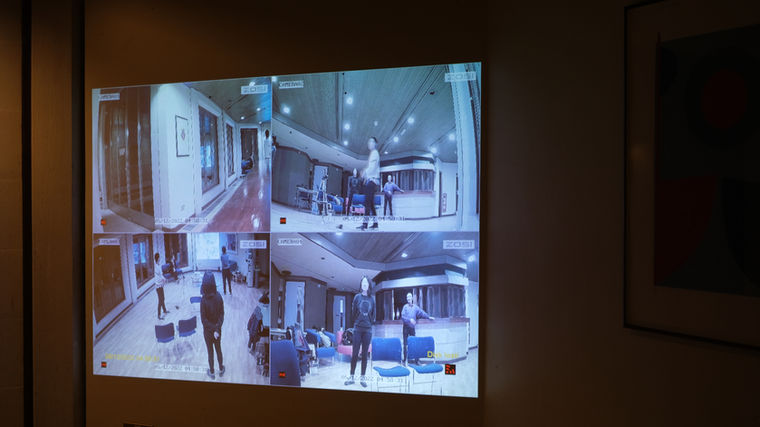COPENHAGEN IN REHEARSAL
Summary
In 1941, German physicist Werner Heisenberg went to Copenhagen to see his Danish counterpart, Niels Bohr. Together they had revolutionized atomic science in the 1920s, but now they found themselves on opposite sides of a world war. In this incisive drama, by a prominent British playwright, which premiered at the Royal National Theatre in London and opened to rave reviews on Broadway (ultimately winning the 2000 Tony Award for Best Play), the two men meet in a situation fraught with danger in hopes of discovering why we do & what we do.
Michael Frayn
Michael Frayn was born in London in 1933. He began his career as a reporter for the Guardian and later the Observer. After leaving the Observer he continued to write as a columnist as well as publishing novels and plays for television and stage. His plays for stage include: Copenhagen, After Life, The Two of Us, Alphabetical Order, Donkeys’ Years, Clouds, Balmoral (Liberty Hall), Make and Break, Noises Off, Benefactors, Alarms and Excursions, Look Look, Here and Make and Break. Other translations include: four full-length Chekhov plays – The Cherry Orchard, Three Sisters, The Seagull and Uncle Vanya and four one-act plays – The Evils of Tobacco, Swan Song, The Bear and The Proposal. Mr. Frayn is married to the biographer and critic Claire Tomalin.
Copenhagen in Rehearsal
Copenhagen in Rehearsal, based on the classic Copenhagen by playwright Mike Frayn. It is based on the work of physicists Niels Bohr and Werner Heisenberg. Bohr and Heisenberg met in Nazi-occupied Copenhagen in the autumn of 1941. The rehearsal process is combined with digital technology such as machine learning, Portrait Composition and digital sound technology. Allowing the audience to live with the actors in the theatre rehearsal process, exploring Cyber perspectives and flexible ways of engaging with the performance scene. It allows us today to think critically again about the relationship between science and ethics, technology and life.
Historical Truth in Certainty
In the autumn of 1941, German physicist Werner Heisenberg made a difficult journey to Nazi-occupied Copenhagen to meet his mentor Niels Bohr. All we know is that their friendship broke up, which saddened Niels. Even after the war, when they tried to recall the content of their meeting, their memories differed greatly. The event itself resembles a double-slit experiment - we have no idea about the intermediate process, but all of us are deeply affected by the fallout without a doubt. Our work aims to explore the various possibilities of that particular historical moment. Can we assume this? Who’s us referring to?
















